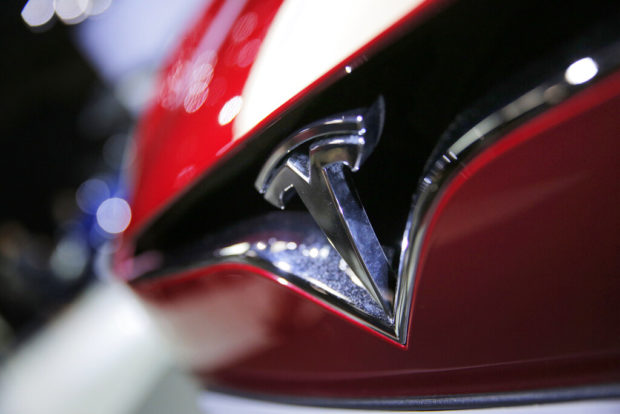US agency examining Tesla unintended acceleration complaint
DETROIT — The U.S. government’s auto safety agency is looking into allegations that all three of Tesla’s electric vehicle models can suddenly accelerate on their own.
Brian Sparks of Berkeley, California, petitioned the National Highway Traffic Safety Administration asking for an investigation. An agency document shows 127 owner complaints to the government that include 110 crashes and 52 injuries.
The agency said it will look into allegations that cover about 500,000 Tesla vehicles including Model 3, Model S and Model X vehicles from the 2013 through 2019 model years. The agency’s investigations office will evaluate the petition and decide if it should open a formal probe.
“I am concerned that these complaints reflect a systemic defect that has not been investigated by NHTSA,” Sparks wrote to James Owens, the acting NHTSA administrator. “I am also concerned that these potential defects represent risk to the safety of Tesla drivers, their passengers, and the public.”
Messages were left Friday seeking comment from Tesla.
NHTSA is already investigating three December crashes involving Tesla vehicles in which three people were killed. The agency’s special crash investigations unit sent teams to Gardena, California, and near Terre Haute, Indiana, to probe two fatal crashes. Another crash in Connecticut also is under investigation.
Frank Borris, a former head of safety defect investigations for NHTSA, said the number of complaints cited in the petition is unusual and warrants further investigation.
“The sheer number of complaints would certainly catch my eye,” said Borris, who now runs an auto safety consulting business.
Tesla owners communicate with other owners on Internet forums and social media, and that could influence the number of complaints, he said.
He said the timing of the petition is good, because the agency needs to do a “deeper dive” into Tesla safety.
Some of the unintended acceleration complaints, which have yet to be verified by NHTSA, allege that the cars’ electronics malfunctioned.
In his 69-page petition, Sparks analyzed the complaints to NHTSA and determined that many of the crashes happened while drivers were parking the Teslas. He compared Tesla’s unintended acceleration complaint rate to other vehicles and found Tesla’s to be much higher.
Many of the reports, Sparks wrote, show that Tesla has refused to share data with vehicle owners after an unintended acceleration incident. “It is clear that Tesla has the data and is aware of the problem,” Sparks wrote.
In one complaint, an owner in San Clemente, California, told NHTSA that in November of 2018, a Model X SUV accelerated on its own to full power during a U-Turn on a city street. The driver had a foot on the brake, but the SUV accelerated in a fraction of a second, according to the complaint. The driver alleged that something in Tesla’s system “triggered the sudden spontaneously full acceleration, resulting in this collision.”
The SUV hit a parked vehicle, the air bags inflated and the owner had a large abdominal bruise and several small chest bruises, according to the complaint. People who file complaints with NHTSA are not identified in the agency’s database.
The driver asked NHTSA to find out whether the Tesla complaints had common elements, including parking or making turns at low speeds.
In another crash, in May of 2013, the owner of a Model S sedan in Thousand Oaks, California, complained that while pulling into a parking spot, the car suddenly accelerated on its own.
The Model S went over a parking block and a curb and struck a cement light post. The air bags inflated, but no one was hurt, the complaint said.
Three weeks after the crash, the owner got a letter from Tesla saying that the accelerator was depressed to 48% just before the crash and 98% at the time of impact. The owner still believes the car accelerated by itself, the complaint stated.
Anyone can petition NHTSA to investigate an auto safety problem, and the agency said in a statement Friday that it encourages people to report concerns.
In the other Tesla crashes that NHTSA is investigating, authorities are trying to determine whether the cars were operating on Autopilot, a system designed to keep a car in its lane and a safe distance from other vehicles. Autopilot also can change lanes on its own.
Separately, the National Transportation Safety Board will hold a hearing Feb. 25 on a fatal crash in Mountain View, California, involving a Tesla that was operating on the company’s Autopilot driver assist system.
Tesla has said repeatedly that its Autopilot system is designed only to assist drivers, who must still pay attention and be ready to intervene at all times. The company contends that Teslas with Autopilot are safer than vehicles without it, but cautions that the system does not prevent all crashes.
NHTSA’s crash program has inspected 23 crashes involving vehicles that the agency believed were operating on some form of partially automated advanced driver assist system. Fourteen of these cases involved Tesla models. The team investigates more than 100 crashes per year.
